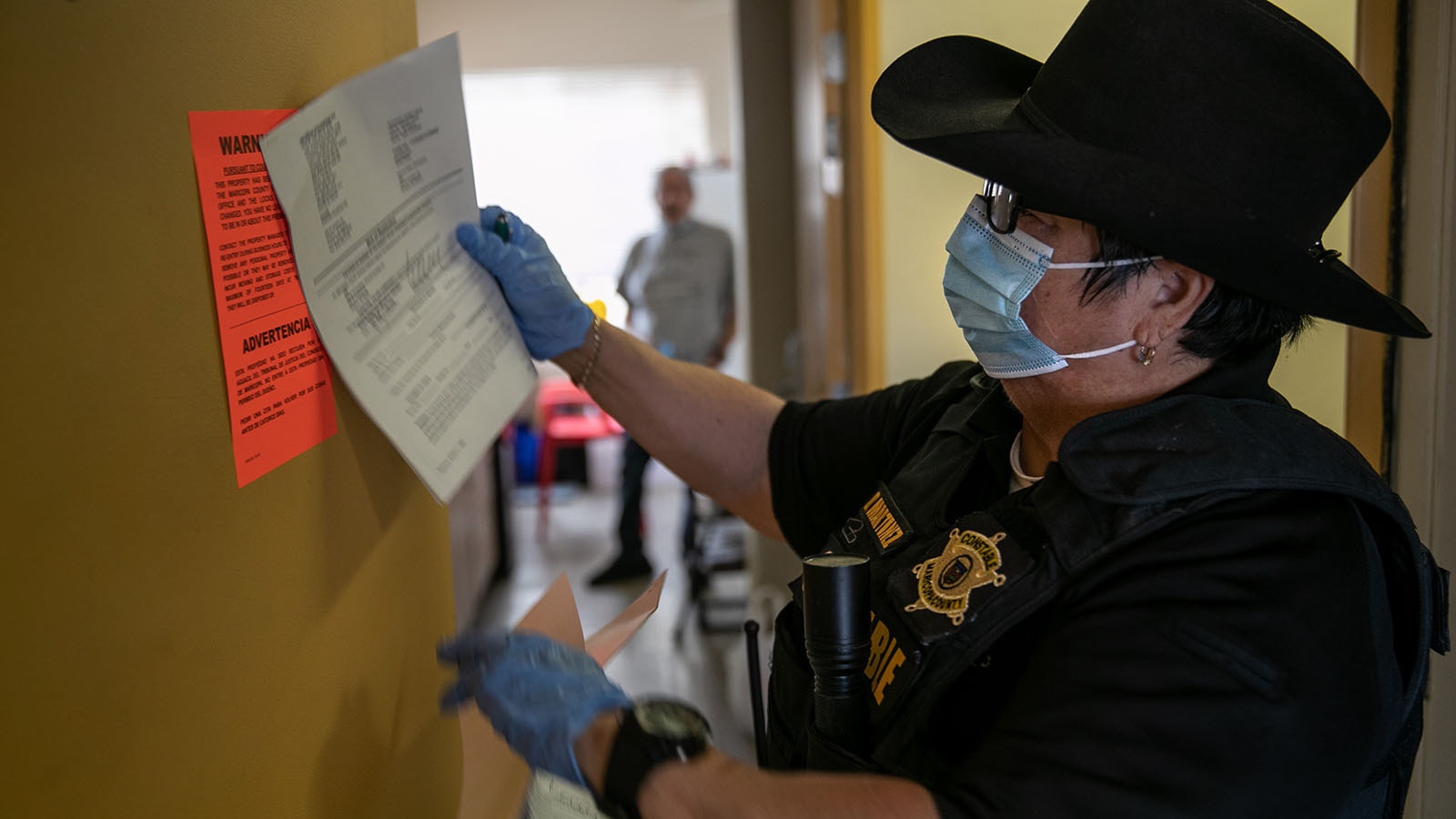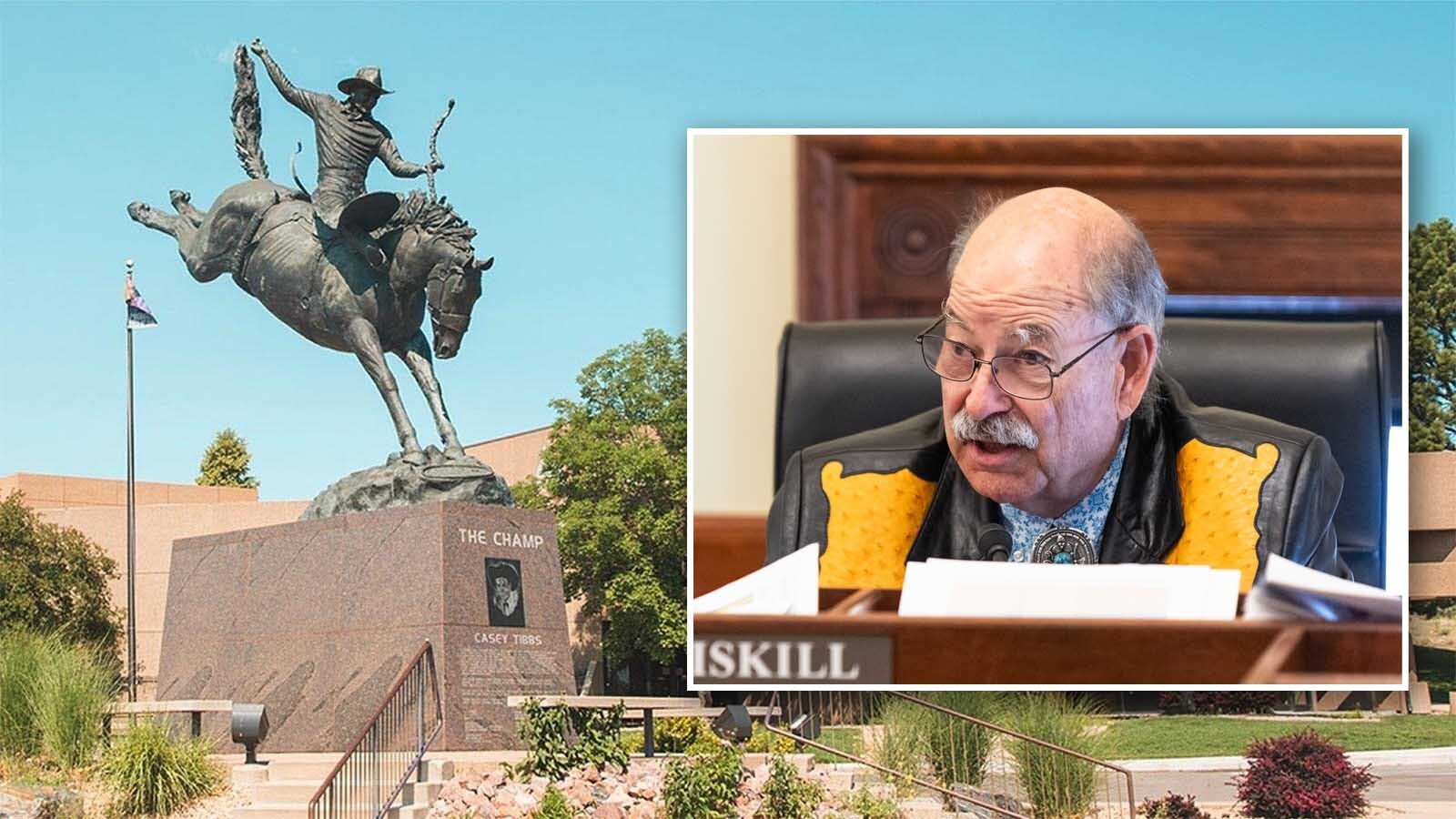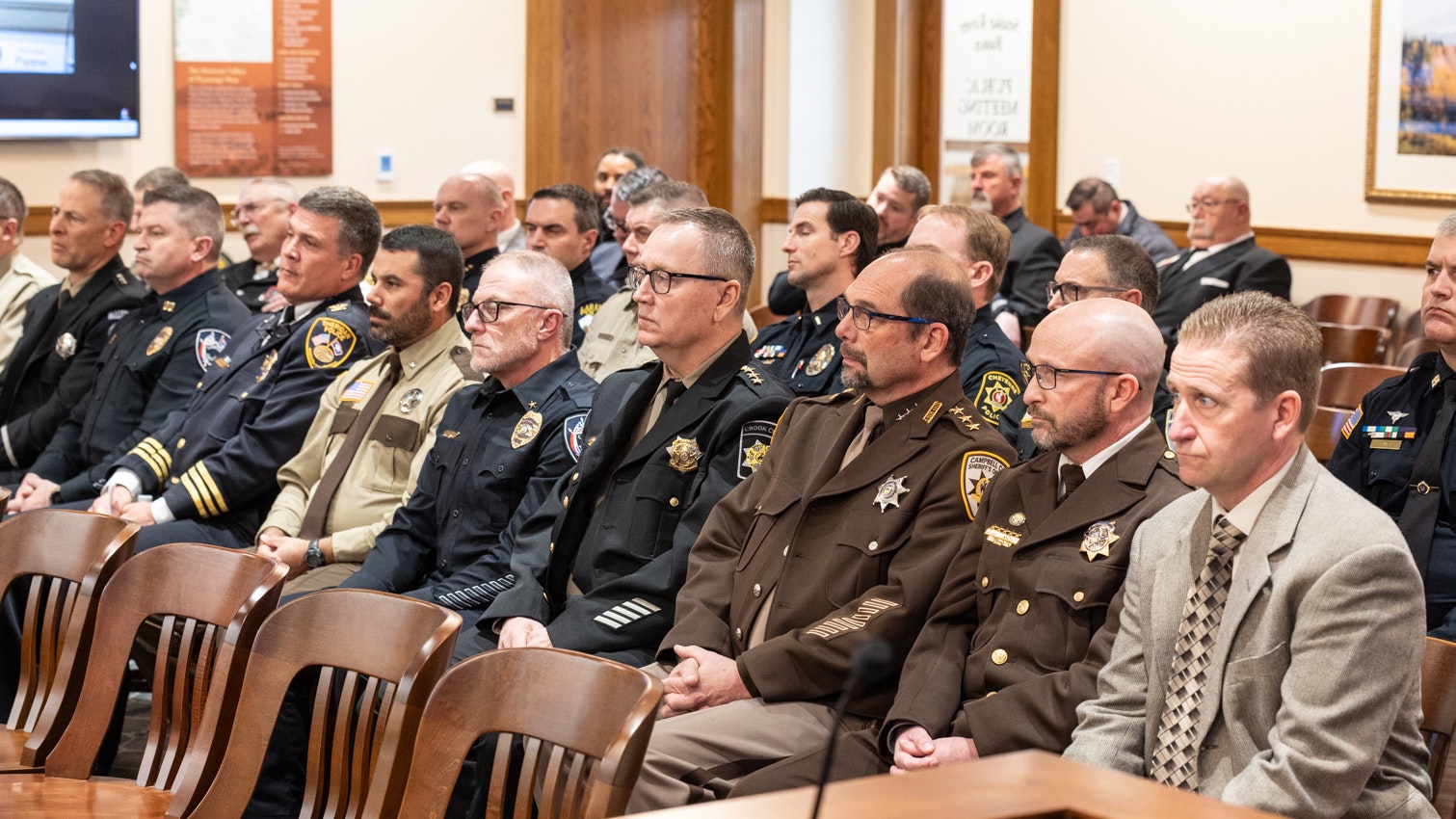The Joint Judiciary Committee of the Wyoming Legislature advanced legislation Thursday that allows for a quicker removal of unwanted squatters in people’s homes.
The draft bill is intended to simplify the process for removing people who occupy properties illegally without the owner’s permission.
State Sen. Bill Landen, R-Casper, co-chair of the Judiciary Committee, believes the bill not only helps law enforcement be able to act, but also protects property rights and an owner's ability “to get someone out of a property where they’re not supposed to be,” he said.
The bill passed on a 10-4 vote.
Landen and Sens. Dan Furphy, R-Laramie; Wendy Schuler, R-Evanston; Cale Case, R-Lander; and Ed Cooper, R-Thermopolis; and Reps. Barry Crago, R-Buffalo; Art Washut, R-Casper; Ember Oakley, R-Riverton; Rachel Rodriguez-Williams, R-Cody; and Tony Niemec, R-Green River, voted in support of the bill.
Reps. Ken Chestek, D-Laramie; Karlee Provenza, D-Laramie; Jeremy Haroldson, R-Wheatland; and Mark Jennings, R-Sheridan, voted against it.
What It Does
A squatter is usually considered someone who settles on property without any legal claim or title. Squatters do not have rights in Wyoming.
The bill would only apply to squatters and not former rental tenants.
It authorizes property owners to request law enforcement assistance for the removal of unauthorized occupants inside a residential property. It also prohibits the unlawful use of false property documents and increases the level of offense for property destruction and defacement.
Owners of property or someone working on their behalf may request local law enforcement to immediately remove any person unlawfully occupying their residential dwelling if the person requested to be removed is still there.
To request the immediate removal of an unauthorized person who’s occupying a residential dwelling, the property owner must submit a complaint including the date they bought the property and stating that a person has unlawfully occupied the property and has been told to leave.
Upon receiving the complaint, law enforcement shall verify that the person who submitted it is the owner and serve a notification that the squatters immediately vacate the dwelling.
The officer shall also attempt to verify the identities of all the people in the residential dwelling and may arrest anyone there for trespassing, outstanding warrants or any other legal cause. A stipulation brought by Provenza that a squatter get 72 hours to leave the property was rejected by the committee.
The bill also states that any person who knowingly presents a false document purporting to be a valid lease agreement, deed or other instrument conveying real property rights shall be guilty of a misdemeanor punishable by imprisonment for not more than six months in jail, a fine not to exceed $750, or both.
Similarly, any person who lists or advertises residential property for sale knowing that the purported seller has no legal title or authority to sell the property, or who rents or leases the property to another person knowing that he has no lawful ownership or leasehold interest in the property, shall be guilty of a felony punishable by up to two years in prison and or a fine not to 6 exceed $5,000.
Wyoming Problem
Casper has become a hotspot for squatting in recent years.
In September, Casper real estate agent Ronna Boril shared a story with the committee about how squatters impacted her life.
Boril had been renting out a home to a man and his wife for about six months before they left the property.
The tenant informed Boril that he had already gone to Wisconsin, but the home would be repaired and cleaned. About three weeks later, she visited the property to find the home occupied by unknown men who verbally accosted her for being there.
A man there told Boril it wasn’t her property, and that they had signed a lease and given money to someone they thought was an owner. Boril informed them they were trespassing and that they needed to leave the property immediately.
“It was a tense moment,” she said.
Boril said members of the local sheriff’s office and police department told her they couldn’t do anything to remove the men because they didn’t have statutory authority. They told Boril she’d have to file a forcible entry and detainer.
By the time she returned to the home the next day, the men were gone, but the place was trashed. Filthy mattresses littered the floor along with drug paraphernalia, clothes and trash strewn about.
New Felony Option
The current charge of property destruction in Wyoming is dependent on whether $1,000 or more damage was caused to determine if it’s assessed as a felony or not.
The bill also establishes a new felony option for property destruction of up to 10 years in prison and $10,000 in fines if a person unlawfully detains, occupies or trespasses on property and knowingly defaces, injures or destroys property, regardless of the cost of restoring the injured property or the value of the property if destroyed.
Landen questioned if this would make him liable to receiving a felony if he tiptoed through a neighbor’s patch of tulips, which it wouldn’t as the law only applies to the inside of a dwelling.
Provenza brought up how people with legitimate mental health issues may get imprisoned because of the expanded charge.
“Talk about kicking people while they’re down,” she said.
Case disagreed, saying anytime someone squats in another person’s house it creates a dangerous situation.
Some Shortcomings
The bill provides new direction for police chiefs and county sheriffs, which Allen Thompson, executive director for Wyoming Association of Sheriffs and Chiefs of Police, commended as giving a clearer playbook for law enforcement officers to remove squatters.
But he also said the bill still lacks language stipulating an investigation to establish probable cause.
Chestek voted against the bill, saying it puts law enforcement officers in the position of being “judge, jury and executioner.”
“There’s still laws (now) that I think are sufficient and those remedies incorporate due process and have real process deciding who does and who doesn’t have rights,” he said. “I don’t like putting on law enforcement officers the decision if somebody has the right or not.”
Provenza called the legislation “muddled at best,” and said law enforcement already has the mechanism of trespassing and eviction charges at its disposal.
“Golly gee, it used to mean something that a bill isn’t ready for primetime, and it sure isn’t now,” she said.
Thompson expressed concern about a clause in the bill that states there can’t be any pending litigation related to the residential dwelling where the squatting is happening. Thompson said this isn’t always easier to determine if civil action is taking place. Also sometimes difficult, he said, is verifying ownership of a property.
Crago said this hurdle could be alleviated by putting the onus on the property owner to prove ownership. He also successfully passed an amendment on this piece, saying the litigation has to be “known.”
Thompson said it usually takes two to three months to remove someone who was previously a legal tenant in Wyoming, but the removal of someone who has entered a home with no prior agreement is much quicker.
Converse County Sheriff Clint Becker added that law enforcement now doesn’t get involved with forcibly removing a tenant from a property until receiving a court order to do so.
Evansville Police Chief Mike Thompson brought up an ambiguous situation where homeless people put up a tent near a John Deere dealership in his community. If the final bill is limited to residential dwellings, he expressed concern there could be frustration felt among commercial businesses being excluded from the new squatter law.
Mason Teague, a University of Wyoming law student, said the bill as written is overly broad and could be applied in ways outside the intended scope of the legislation.
He mentioned how if a tenant stayed in the property after the expiration of a lease, such as a new owner taking over the property, they could be immediately forcibly removed under the legislation rather than the traditional eviction process taking place.
Oakley clarified, however, that the bill does not pertain to evictions or tenant laws.
“These are not tenants,” she said about squatters.
Fraudulent Documents
The committee also passed legislation establishing an offense for using fraudulent documents to gain or remain in possession of property in Wyoming.
Washut questioned what the bill does that Wyoming’s forgery and theft laws don’t already cover.
Thompson said sheriffs support the bill, and although they’re not sure it adds any power to fight these crimes, it does make the current laws more clear.
“Outlining it to these circumstances, I don’t think hurts,” he said.
The bill passed on an 8-5 vote.
Crago, Landen, Niemec, Case, Washut, Schuler, Oakley and Cooper voted in support of the bill. Furphy, Chestek, Rodriguez-Williams, Provenza and Jennings voted against it.
Leo Wolfson can be reached at leo@cowboystatedaily.com.





